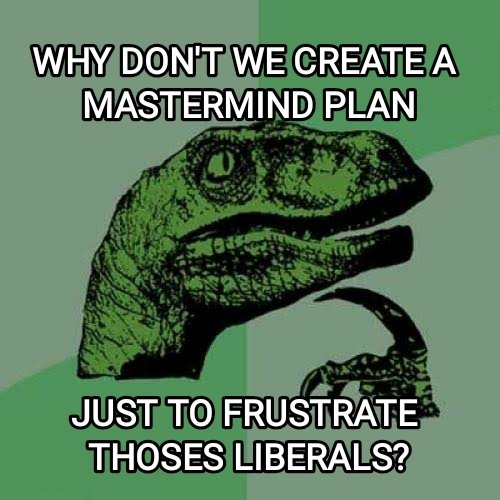Impression on Modern Monetary Theory (MMT)

(Its fun to make memes)
So, we are seeing lots of economists putting this heteredox neokeynesian vertent in practice, FED, BCE, Japan... While results conditions diverges, the argument is that money is not a scarce commodity that can restrict what a country could do, yeah, this means it should be unlimited, the counterpoint is that many disagrees with that saying it can lead to inflation, Warren Buffett one of them. In an answer, the argument is that through history others exogenous factors were the true responsibles for inflation, like bankings trying to profit...
In fact the situation of no inflation in Japan is also a counter argue.
https://peakd.com/inflation/@dstampede/why-japan-isnt-getting-inflation
Well, I try to take a central thinking, observe and trying to understand whats going on... And I don't like to have an auto bias confirmation ("tendency to search for, interpret, favor, and recall information in a way that confirms or supports one's prior beliefs or values").
But my opinion is that if all that is directed to measures which tends to increase long term real wage (purchasing power) by structuring whats necessary, so thats ok. Many times money isn't even the issue, but bad laws that doesn't let things works or even the lack of some that would benefit a whole.
By the other side it leads to a growth in public debt (that normally is comparable to GDP to see how a country is performing and make projections), so its very important that isn't international borrowed money that could turn into a debt trap diplomacy, mmt economists defends that gov can always issue more currency to pay its own bills, bonds... At the same time Idk if this rollover in fluctuating debt is sustainable on long term.
And the credit risk avaliation will also depend on its liquidity, the global acceptance and necessity, so its very subjective from what economy we talk. If its one that doesn't have a historical stable fiat, with some inflationary trend that can lead to some "currency crisis" (lack of dolar reserves to stabilize the parity through swaps, turning it more floating and causing a depreciation until they have to create a new national currency...). Well, that turns the table and doesn't make it seen a good solution or monetary policy implementation.
Althought I also don't like the idea of raising tributation to control public debt, which isn't nice to private equity people.
A commonly solution is simply selling bonds to increase the revenue... Its crazy because they don't even need to rise interests to sell some US10Y after printing, is that some kinda of delta neutral?! lol. Looks like a money maker machine on two edges. Well, its not like banks weren't using derivatives to boost whatever they want...
Ok, apparently banks don't like all this MMT because looks like a competition. Even the head of IMF disagrees a lot. Subjective opinions tells that instead of gov printing and giving or applying on whatever, banks thinks they should be the ones lending with interests. And in fact, the ammount of money created by them this way is a lot... Thats why even in a neoclassical model of no monetary expansionism but keeping low interests to incentivize production and economical growth can also lead to inflation. There is no easy solution from both views, but a search for an optimal balance. But yeah, some disagreements with austriacs.
Ok, but how mmt theory deals with inflation? Apparently thats where it also differs from ortodox keynesian, they don't seek to raise interests to control aggregated demand, instead they would lower gov spendings and raise tributation. Well, I talked before why I don't like much this idea. Besides, why I never see anyone talks about lowering tax when its to incentivize economy?! Which cleary would increase real wage for everyone (consumers and producers) on long term with less inflation risk, Im in favor of taking out this burden not well spent...
I think is right the interpretation on Laffer curve that high tributation leads to more revenue in the beginning, but as soon as business goes broke it tends to go lower. While lower tributation can lead to less revenue at the beginning, but as companies can be more competitive and profitable, it will lead to more tributation (just to clarify).
And what we are actually seen is the rise of interests, what contradicts the theory implemented. I was in doubt before, and even thinked this would be the natural fiscal behavior, since its also keynesian based... Also wrote about that on other post, so it was missception that ocurred in practice lol... All right, thats it.
!LOL
lolztoken.com
I just knew she was a keeper.
Credit: reddit
@dstampede, I sent you an $LOLZ on behalf of @holovision
Use the !LOL or !LOLZ command to share a joke and an $LOLZ
(6/8)
Hey yah, thanks for the curation and the tokens. But I didn't want to take advantage of the curation trail, I just did a random meme, didn't know you curate by the tag (MEME), I didn't even called the memess.curator bot. Dang you guys are doing some mitosis here. But I really like the token and the !MEME bot. Thanks, I'll try to win some more on the tourney and am staking n farming in the pool.
!PIZZA
!LUV
@holovision, @dstampede(1/1) sent you LUV. wallet | market | tools | discord | community | <>< daily
wallet | market | tools | discord | community | <>< daily
Credit: arthursiq5
Earn Crypto for your Memes @ hiveme.me!
PIZZA Holders sent $PIZZA tips in this post's comments:
@dstampede(1/5) tipped @holovision (x1)
You can now send $PIZZA tips in Discord via tip.cc!